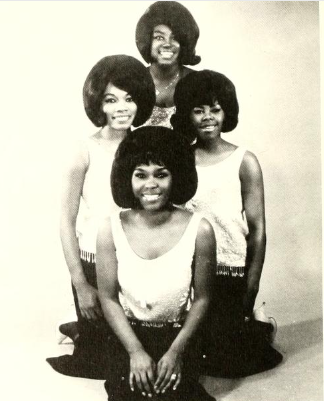In the late 1960s and into the early 1970s, the advancing struggle for civil rights infused nearly every facet of the UNCG and the Greensboro community. The Greensboro environment of this time, while being a volatile scene for race relations, enjoyed musical performances from some of the great African American musicians of the era. Artists touring through the city included Marvin Gaye in 1965, the Preservation Hall Jazz Band in 1969, and the Jackson 5 performed at the Greensboro Coliseum on December 28th, 1970. In addition to performing within the typical entertainment venues of the city, the UNCG campus attracted a respectable share of these musicians, and if you happened to be a Motown fan during the 1968/69 school year, you were in heaven.
Kicking off the Fall Charlies of the 1968/1969 school year was none other than Stevie Wonder. Wonder, who was 18 years old at this time, (and noted as unmarried to the interested readers of the student newspaper), opened his performance with “Your Precious Sweetheart.” Wonder tried to engage the audience into participating in “The Look of Love,” but the lackluster clapping and vocal accompaniment by the audience prompted the remark, “I don’t hear you say nothing’- sounds like Governor Wallace.” During his performance, these students were treated to Wonder’s amazing talent, not only in voice and piano, but also percussion and harmonica. When asked to define the nature of Soul Music, Wonder’s replied, “’Soul’ is a feelin; it’s being capable of expressing oneself and for me all I can do is express myself through music. Anyone can have ‘Soul.’ The quality of expression determines the depth of ‘Soul.”
Following Stevie Wonder in the concert series was none other than the “King of Beach Music,” Clifford Curry. Curry, originally from Knoxville, was a veteran of the 1950s doo-wop scene, having performed with The Echoes and the Five Pennies. Curry’s recording of, “She Shot a Hole in My Soul,” catapulted him to fame in the Carolina Beach Music scene, and he recorded successfully in this market for decades. In 1995, Curry was inducted to the Beach Music Hall of Fame, and his latest CD, a compilation of his hits, was released in 2010.
Of course, Valentine’s Day was reserved for the ladies. The Shirelles, one of the pioneer “girl groups” of the 1950s and 1960s, performed in the Cone Ballroom for the “couples only” Valentine’s Day Dance on February 15th, 1969. The original members of the Shirelles, Shirely Owens, Addie “Micki” Harris, Doris Coley, and Barbara Lee, began recording in 1958. The Shirelles was one on the first girl groups to make it to the Billboard Top 100, rocketing to fame with the hit, “Will You Still Love Me Tomorrow.” They recorded several hits through the 1960s, including “Tonight’s the Night,” Dedicated to the One I Love,” Mama Said,” and “Soldier Boy.” The Shirelles have been inducted into the Rock and Roll Hall of Fame and the Vocal Group Hall of Fame.
Article by Stacey Krim


